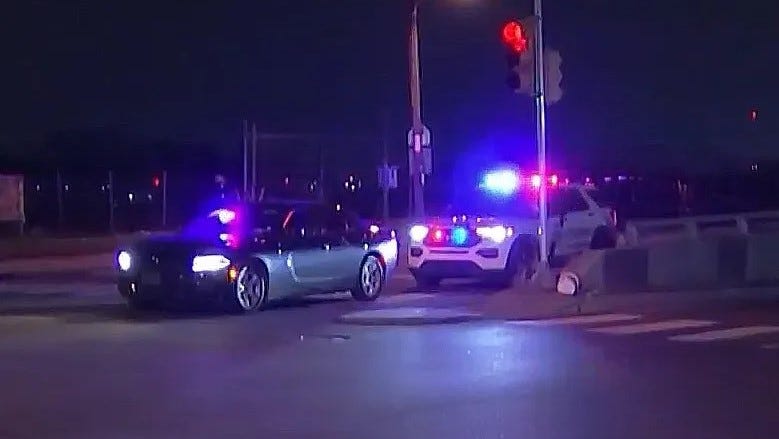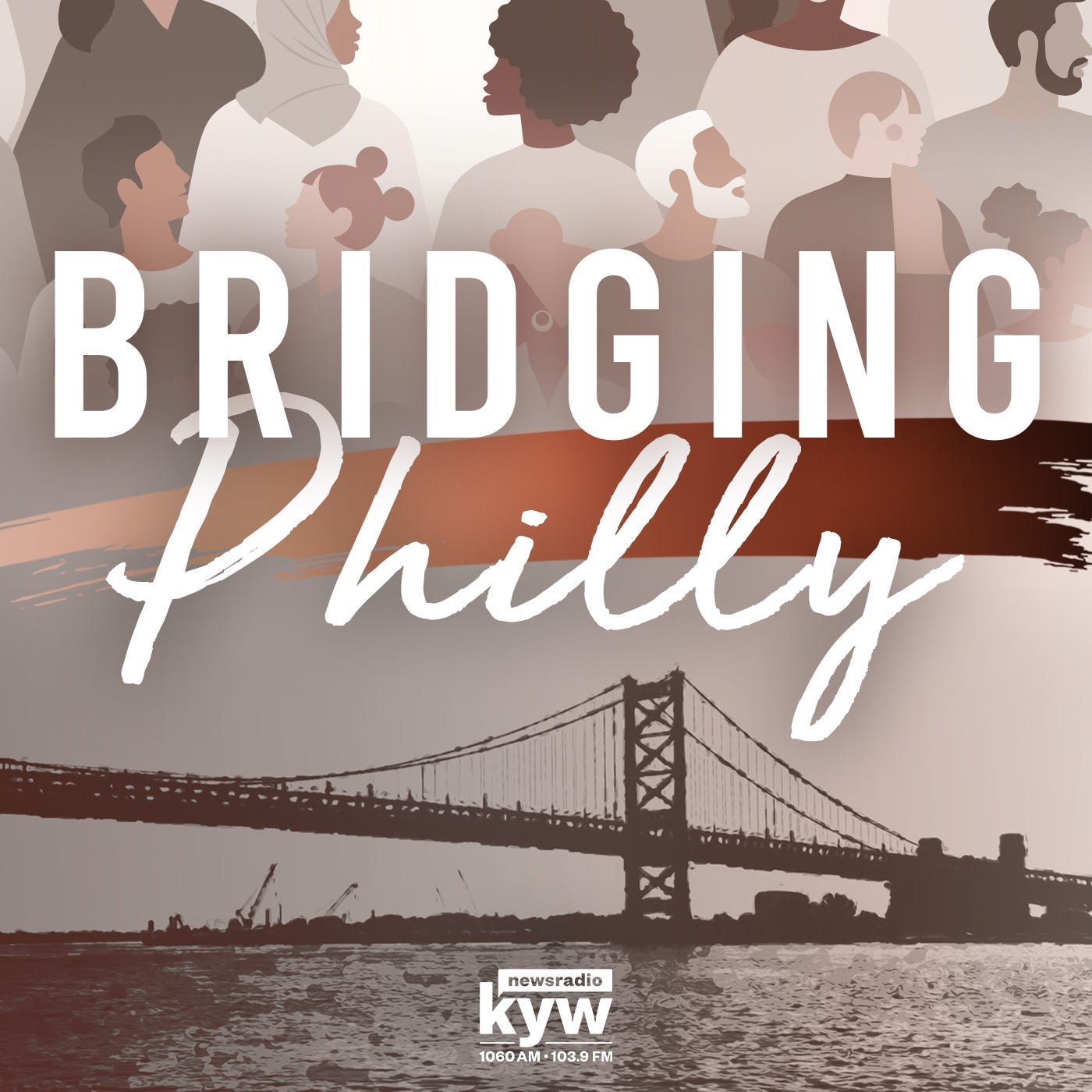
PHILADELPHIA (KYW Newsradio) — Less than half of Philadelphians feel safe in their own neighborhoods at night — an all-time low for the city, according to a recent Pew study.
An overwhelming number of residents say that crime, drugs, and safety are the most important issues facing the city.
When it comes to safety in Philadelphia, the Pew findings said the impacts are felt more heavily depending on race. 63% of white Philadelphians say they feel generally safe in their neighborhoods at night, compared to only 35% of Black and 32% of Hispanic residents who say they feel safe.
Nearly 70% of residents have heard gunshots in their neighborhoods over the past year.
Those racial disparities mirror similar impacts from the pandemic.
For example, Hispanic and Black residents are more likely to have lost someone during the pandemic.
Pew also reported that Black and Hispanic residents had disproportionately more difficulty paying their mortgage or rent since the COVID-19 outbreak.
The poll also explored attitudes on the number of police officers.
More than 60% of Philadelphians say the city needs more police, up from 45% in 2020.
However, white Philadelphians are more likely to view the police as fair. Black and Hispanic residents view police as less fair in 2022 than they did immediately after the 2020 protests triggered by the murder of George Floyd.
The study comes as budget season is underway for City Council.
A spokesperson from the mayor’s office said his priority is to keep people safe, which is why his fiscal 2023 budget proposal includes a $184 million investment in the City’s Violence Prevention Plan. That is an 18.5% increase from fiscal year 2022.
He also said they “know Philadelphia residents of color continue to feel the impacts of violence and economic downturns more acutely and are actively working to reverse those disparities.”
Despite the concerning outlook from the study, most Philadelphians are hopeful about the future, as the majority said the city’s best days are ahead.
Read the full fiscal year 2023 operating and capital budget presentation below.
The following full statement comes from a spokesman for Mayor Jim Kenney.
The challenges we’ve faced as a city, particularly since the beginning of the pandemic, have tested our collective resolve. Responding to, and rebuilding from, the COVID-19 pandemic and its impacts, including on gun violence, has been and will continue to be the Mayor’s focus. Many of the challenges facing Philadelphia—including the uptick in the number of shootings and homicides and the continued impacts of the drug and opioid crisis—are disturbing trends that are affecting municipalities nationwide.
The Mayor's number one priority is to keep people safe and protect our residents. That's why his FY23 budget and Five Year Plan presented to City Council last week makes critical investments in the Roadmap for Safer Communities, the City’s Violence Prevention Plan. Including long-term investments, we’re directing more than $184 million to help make our communities safer—an 18.5 percent increase over FY22. Some of the investments are detailed below.
We know residents are concerned about safety, and the Office of Policy and Strategic Initiatives for Criminal Justice & Public Safety (CJPS) continues to host community listening sessions, which seek to engage residents and community partners around the Roadmap to Safer Communities, provide a space to share ideas about violence prevention, and discuss ways to deepen community engagement in neighborhoods impacted by gun violence.
On the issue of ensuring the Police Department can reach its needed staffing levels, this week the Mayor requested a waiver from the Civil Service Commission to waive the requirement that Police recruits live in the city for a year before they may be hired as provided for in the Civil Service Regulations, which will improve PPD’s ability to recruit during this critical period.
The findings of the poll also underscore why the Kenney administration’s ongoing focus on racial equity is critical—we know Philadelphia residents of color continue to feel the impacts of violence and economic downturns more acutely and we are actively working to reverse those disparities.
The City remains committed to listening to and engaging with communities most impacted by violence. On this front, the City, in partnership with United Way of Greater Philadelphia and Southern New Jersey (UWGPSNJ) and 211 Southeastern Pennsylvania (SEPA), recently announced the launch of a 24-hour Violence Prevention Hotline, which will provide real-time support to people at-risk for engaging in violence, or who are in neighborhoods experiencing high rates of gun violence. These supports are available 24-hours a day, seven days a week, and are available via phone call, text, email, or website chat.
Until we address the availability and ease of access to firearms, we will always be fighting an uphill battle. We need the ability to adopt proven gun policies that will save lives, and we will continue to call on the Pennsylvania legislature to let us meet Philadelphia’s unique needs and to fight for that urgently in the lawsuit we have filed against the state challenging the state’s inaction on this issue.
Some of the new investments include:
— $6 million to expand evidence-based programs that target those most at risk of being a victim or a perpetrator of gun violence and provide connections to services, treatment and employment. This includes investments for the Group Violence Intervention program, the Community Crisis Intervention Program, new behavioral health supports, and the implementation of a local version of READI (Rapid Employment and Development Initiative) that will help decrease shootings among those at highest risk of gun violence.
— An additional $12 million for the Anti-Violence Community Partnership Grants, which funds community-based organizations that are focused on reducing violence through trauma-informed healing and restorative practices in the neighborhoods most affected by violence. Our total investment in this program alone has been more than $32 million over the last two years.
— More than $3 million to enhance the Police Department’s ability to solve violent crime and modernize police tools with forensic upgrades and policy mobility, which will facilitate the use of enhanced forensic analysis in every homicide.
— $1.5 million to support community engagement, homicide and non-fatal shooting reviews, planning, and improved data analytics to ensure anti-violence programs are addressing the causes of violence, reaching those who need it most, and service connections are successful.
— $800,000 for violence prevention programs and supports focused on youth within the Juvenile Justice system including restorative justice programming and $1.5 million for two additional Community Evening Resource Centers for a total of four Centers operating from 7 p.m. to 2 a.m. to support Philadelphia youth who are out after a curfew.
For more from KYW Newsradio:
- Download the Audacy App
- Listen live
- Listen on your smart speaker
Related podcast: The grief mothers are sharing with each other after their children are killed by gun violence.



